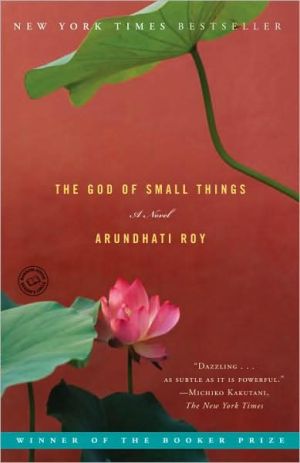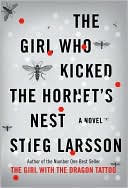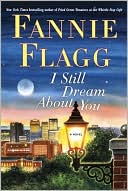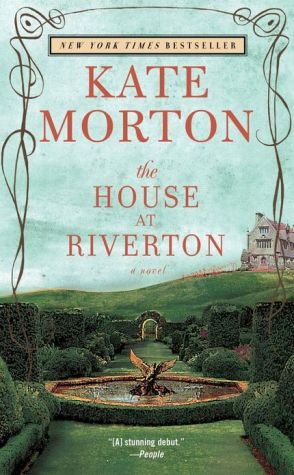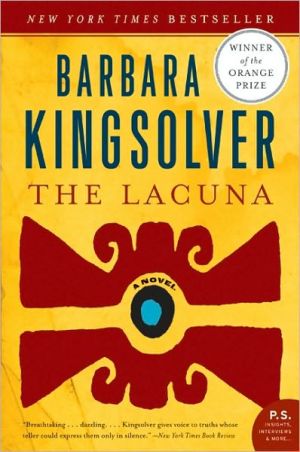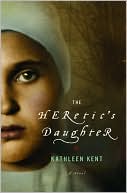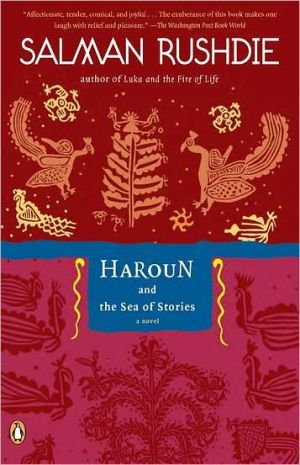God of Small Things
Compared favorably to the works of Faulkner and Dickens, Arundhati Roy’s debut novel is a modern classic that has been read and loved worldwide. Equal parts powerful family saga, forbidden love story, and piercing political drama, it is the story of an affluent Indian family forever changed by one fateful day in 1969. The seven-year-old twins Estha and Rahel see their world shaken irrevokably by the arrival of their beautiful young cousin, Sophie. It is an event that will lead to an illicit...
Search in google:
"Dazzling...remarkable. A novel that turns out to be as subtle as it is powerful." --The New York Times "This outstanding novel is a banquet for all the senses we bring to reading." --Newsweek Winner of the prestigious Booker Prize in 1997, The God Of Small Things was a stunning debut for Arundhati Roy. Roy's craftsmanship, highly original style, and intricate structure struck a chord with reviewers and readers alike. An international bestseller, this exquisite novel will surely be remembered -- and reread -- in years to come. It is a work that "makes you catch your breath, that changes the way you view life and its hidden complexities." (Earth Times) Set in Kerala, India, in 1969, The God Of Small Things is the story of seven-year-old twins Rahel and Estha, born of a wealthy family and literally joined at the soul. Rahel and Estha are cared for by a host of compelling characters: their beautiful mother, Ammu, who has left a violent husband; their Marxist uncle, Chacko, still pining for his English wife and daughter who left him; their prickly grandaunt, Baby Kochamma, pickling in her virginity; and the volatile Veluth, a member of the Untouchable caste. When Chacko's ex-wife, Margaret, and lovely daughter, Sophie, unexpectedly return, the household is thrown into disarray. Tragedy strikes in the form of an accident (that may not have been accidental) and a terrifying murder. Tremendously powerful and lushly romantic, The God Of Small Things effectively shifts between two time periods: Rahel's present-day trip home to see her mute, haunted twin brother, and a December day 20 years before -- the tumultuous day that tears the family apart. With mesmerizing language that brings to mind such authors as Salman Rushdie, Gabriel García Márquez, and William Faulkner, The God Of Small Things ambitiously tackles such profound issues as family, race, and class, the dictates of history, and the laws of love. Rahel and Estha learn too soon that love and life can be lost in a millisecond. To the Western reader, The God Of Small Things is both exotic and familiar, written in a sensual language that's entirely fresh and invigorated by the Asian Indian influences of myth and culture. Jennifer HowardArundhati Roy's rich, humid fairy tale of a novel begins in June, when the monsoon rains send the province of Kerala, in southwestern India, into fecund frenzy: "The countryside turns an immodest green ... Pepper vines snake up electric poles. Wild creepers burst through laterite banks and spill across the flooded roads." Behind this lush life, however, something festers. Rahel Kochamma, one of the novel's twin protagonists, returns to her family home in the Kerali town of Ayemenem, and decay slithers out to greet her. The house walls "bulged a little with dampness that seeped up from the ground. The wild, overgrown garden was full of the whisper and scurry of small lives. In the undergrowth a rat snake rubbed itself against glistening stone." This slithering overripeness hints at what's really rotten in Ayemenem: the past, specifically a chain of events set in motion on "a skyblue day in December sixty-nine (the nineteen silent)," when the twins' half-English cousin, Sophie Mol, came to visit. Two weeks later Sophie was dead, drowned in Ayemenem's river, leaving behind a shattered family and a terrible secret. The narrative eddies along toward the secret of Sophie's death, but ultimately it flows into the drowning depths of history. The God of Small Things is a story of forbidden, cross-caste love and what a community will do to protect the old ways. The Kochamma family business, Paradise Pickles and Preserves, is emblematic of the theme. Ayemenem is practically pickled in history. Roy, an architect and screenwriter who grew up in Kerala, capably shoulders the burdens of caste and tradition, a double weight that crushes some of her characters and warps others, but leaves none untouched. Roy takes up classic material, but she delights in verbal innovation and stylistic tricks. She runs words together -- "thunderdarkness," "echoing stationsounds" -- and plucks nouns from verbs and verbs from thin air. And she has hit on a striking way of getting at a child's point of view (told in third person, the story unfolds more or less as young Rahel and Estha experience it). When her mother tells a rambunctious Rahel to "Stoppit," Rahel "stoppited." At Sophie's funeral, a bat alights on a mourner: "the singing stopped for a 'Whatisit?' 'Whathappened?' and for a Furrywhirring and a Sariflapping." At times it feels as though you've dropped into a faux Rushdie novel, with cartwheeling corpses and talking statues. Mostly, though, Roy's verbal exuberance is all her own, and it makes The God of Small Things a real pleasure. History's lessons may be bitter, but Roy serves them up fresh, pungent and delicious. -- Salon
Paradise Pickles & Preserves\ \ May in Ayemenem is a hot, brooding month. The days are long and humid. The river shrinks and black crows gorge on bright mangoes in still, dustgreen trees. Red bananas ripen. Jackfruits burst. Dissolute bluebottles hum vacuously in the fruity air. Then they stun themselves against clear windowpanes and die, fatly baffled in the sun.\ The nights are clear, but suffused with sloth and sullen expectation.\ But by early June the southwest monsoon breaks and there are three months of wind and water with short spells of sharp, glittering sunshine that thrilled children snatch to play with. The countryside turns an immodest green. Boundaries blur as tapioca fences take root and bloom. Brick walls turn mossgreen. Pepper vines snake up electric poles. Wild creepers burst through laterite banks and spill across the flooded roads. Boats ply in the bazaars. And small fish appear in the puddles that fill the PWD potholes on the highways.\ It was raining when Rahel came back to Ayemenem. Slanting silver ropes slammed into loose earth, plowing it up like gunfire. The old house on the hill wore its steep, gabled roof pulled over its ears like a low hat. The walls, streaked with moss, had grown soft, and bulged a little with dampness that seeped up from the ground. The wild, overgrown garden was full of the whisper and scurry of small lives. In the undergrowth a rat snake rubbed itself against a glistening stone. Hopeful yellow bullfrogs cruised the scummy pond for mates. A drenched mongoose flashed across the leaf-strewn driveway.\ The house itself looked empty. The doors and windows were locked. The front verandah bare. Unfurnished. But theskyblue Plymouth with chrome tailfins was still parked outside, and inside, Baby Kochamma was still alive.\ She was Rahel's baby grandaunt, her grandfather's younger sister. Her name was really Navomi, Navomi Ipe, but everybody called her Baby. She became Baby Kochamma when she was old enough to be an aunt. Rahel hadn't come to see her, though. Neither niece nor baby grandaunt labored under any illusions on that account. Rahel had come to see her brother, Estha. They were two-egg twins. "Dizygotic" doctors called them. Born from separate but simultaneously fertilized eggs. Estha--Esthappen--was the older by eighteen minutes.\ They never did look much like each other, Estha and Rahel, and even when they were thin-armed children, flat-chested, wormridden and Elvis Presley-puffed, there was none of the usual "Who is who?" and "Which is which?" from oversmiling relatives or the Syrian Orthodox bishops who frequently visited the Ayemenem House for donations.\ The confusion lay in a deeper, more secret place.\ In those early amorphous years when memory had only just begun, when life was full of Beginnings and no Ends, and Everything was Forever, Esthappen and Rahel thought of themselves together as Me, and separately, individually, as We or Us. As though they were a rare breed of Siamese twins, physically separate, but with joint identities.\ Now, these years later, Rahel has a memory of waking up one night giggling at Estha's funny dream.\ She has other memories too that she has no right to have.\ She remembers, for instance (though she hadn't been there), what the Orangedrink Lemondrink Man did to Estha in Abhilash Talkies. She remembers the taste of the tomato sandwiches--Estha's sandwiches, that Estha ate--on the Madras Mail to Madras.\ And these are only the small things.\ Anyway, now she thinks of Estha and Rahel as Them, because, separately, the two of them are no longer what They were or ever thought They'd be.\ Ever.\ Their lives have a size and a shape now. Estha has his and Rahel hers.\ Edges, Borders, Boundaries, Brinks and Limits have appeared like a team of trolls on their separate horizons. Short creatures with long shadows, patrolling the Blurry End. Gentle half-moons have gathered under their eyes and they are as old as Ammu was when she died. Thirty-one.\ Not old.\ Not young.\ But a viable die-able age.\ They were nearly born on a bus, Estha and Rahel. The car in which Baba, their father, was taking Ammu, their mother, to hospital in Shillong to have them, broke down on the winding tea-estate road in Assam. They abandoned the car and flagged down a crowded State Transport bus. With the queer compassion of the very poor for the comparatively well off, or perhaps only because they saw how hugely pregnant Ammu was, seated passengers made room for the couple, and for the rest of the journey Estha and Rahel's father had to hold their mother's stomach (with them in it) to prevent it from wobbling. That was before they were divorced and Ammu came back to live in Kerala.\ According to Estha, if they'd been born on the bus, they'd have got free bus rides for the rest of their lives. It wasn't clear where he'd got this information from, or how he knew these things, but for years the twins harbored a faint resentment against their parents for having diddled them out of a lifetime of free bus rides.\ They also believed that if they were killed on a zebra crossing, the Government would pay for their funerals. They had the definite impression that that was what zebra crossings were meant for. Free funerals. Of course, there were no zebra crossings to get killed on in Ayemenem, or, for that matter, even in Kottayam, which was the nearest town, but they'd seen some from the car window when they went to Cochin, which was a two-hour drive away.\ The Government never paid for Sophie Mol's funeral because she wasn't killed on a zebra crossing. She had hers in Ayemenem in the old church with the new paint. She was Estha and Rahel's cousin, their uncle Chacko's daughter. She was visiting from England. Estha and Rahel were seven years old when she died. Sophie Mol was almost nine. She had a special child-sized coffin.\ Satin lined.\ Brass handle shined.\ She lay in it in her yellow Crimplene bell-bottoms with her hair in a ribbon and her Made-in-England go-go bag that she loved. Her face was pale and as wrinkled as a dhobi's thumb from being in water for too long. The congregation gathered around the coffin, and the yellow church swelled like a throat with the sound of sad singing. The priests with curly beards swung pots of frankincense on chains and never smiled at babies the way they did on usual Sundays.\ The God of Small Things. Copyright © by Arundati Roy. Reprinted by permission of HarperCollins Publishers, Inc. All rights reserved. Available now wherever books are sold.
\ From Barnes & NobleThe Lawlessness of Love \ To read Arundhati Roy's first novel, The God of Small Things, is to remind oneself how large the gods that dispense literary talent can be: Roy writes with extraordinary grace, creating a world so vivid and strangely beautiful that reading it is akin to entering a mirage. Like Salman Rushdie, Bharati Mukherjee, and Chitra Divakaruni, Roy is fascinated by the collision of the ancient and modern in India -- the age-old class hatreds and bigotry that continue to thrive beneath roofs studded with satellite dishes. And like those writers, she is expert at limning the territory of cultural dislocation. Roy's achievement lies in her ability to explore this dislocation through the ebbing fortunes of one particular Indian family. The story of the privileged yet doomed Kochammas is in many ways a miniaturized tale of India itself, a country in which, as Roy states, "misfortune is always relative," a country in which personal turmoil is dwarfed by the "vast, violent, insane public turmoil of a nation."\ The novel opens with the return of Rahel Kochamma to her home in the southwest Indian province of Kerala 23 years after the drowning of her eight-year-old cousin, Sophie. Rahel has returned to see her twin brother, Estha, who was abruptly sent away in the aftermath of Sophie's death; he has himself only recently returned, rendered literally silent by that long-ago trauma. The landscape Rahel walks through is fecund and dank: "Boundaries blur as tapioca fences take root and bloom. Brick walls turn mossgreen. Pepper vines snake up electric poles. Wild creepers burst through laterite banks. Black crows gorge on bright mangoes." The riotous imagery is intentional: the monsoon air causes "locked windows to burst open," and "strange insects to appear...like ideas in the evenings." The sense of secrets about to burst, of tenuous bonds about to snap, pervades the narrative. The once-prosperous family Rahel is returning to (they used to own a thriving pickle factory) has been decimated: Rahel and Estha's mother, Ammu, is dead; their grief-stricken Marxist uncle, Chacko, a Rhodes scholar, has emigrated to Canada; Mammachi, their grandmother, is also dead. The only one that remains is their grand-aunt Baby Kochamma, whose obsessive love for gardening has been supplanted by a newfound passion for televised NBA tournaments and "Bold and the Beautiful" reruns. Seeing her seated in her turmeric-stained nightgown, swinging her puffy, tiny, manicured feet, it is hard to imagine the damage Baby wreaked on the twins so many years earlier.\ It is to Roy's credit that the story that eventually surfaces of Baby's own past, including her unrequited love for a Benedictine monk, explains her actions while never excusing them. Indeed, the histories of all the members of the Kochamma clan -- unconventional, mysterious Ammu; Pappachi, the twins' grandfather, an accomplished but unacknowledged entomologist; Velutha, the gifted yet doomed untouchable -- are so fully portrayed that it is impossible to see even the most heinous among them as guilty. We see their foibles, dreams, weaknesses, and fury; we see them, in short, within the context of their own histories, and within the larger context of their position within Indian society. Wisely, Roy lets the fragments of their stories emerge gradually. Shifting back and forth through time, Roy circles the events of that summer slowly, all the while tightening the noose of her narrative. If the effect is occasionally chaotic, like the jumbled colors of a kaleidoscope before a pattern clicks into place, the complexity of Roy's mosaic redeems her.\ A dazzling way with language doesn't hurt, either. In the humid atmosphere she has created, language itself seems to have twisted and exploded. Roy doesn't hesitate to make up words when ordinary ones don't suffice. Hence afternoon nightmares are called "aftermares," and fat Uncle Chacko's suit grows "less bursty" as he turns shy in front of the daughter he has not seen in several years. Odd yet compelling images abound: A house wears its steep gabled roof "pulled low over its ears, like a low hat." Bright plastic bags blow across the river bordering their home like "subtropical flying-flowers."\ The God of Small Things isn't just about a summer when two children's innocence -- and a third's life -- is lost. It is about a country in which, as Roy states, "various kinds of despair compete for primacy." While exploring societal taboos and the often fatal consequences for those who disregard them, Roy, through the relationship between Estha and Rahel, also explores the limits of loyalty and the essential "Law-lessness" of love. In linking the political turmoil of India to the members of this extraordinary family, Roy has offered us a radically new history, a world so deeply imagined that it -- like the best of fictions -- reads as truth. The ability to touch and be touched, Roy knows, lies beyond legislation.\ —Sarah Midori Zimmerman\ \ \ \ \ \ Jennifer HowardArundhati Roy's rich, humid fairy tale of a novel begins in June, when the monsoon rains send the province of Kerala, in southwestern India, into fecund frenzy: "The countryside turns an immodest green ... Pepper vines snake up electric poles. Wild creepers burst through laterite banks and spill across the flooded roads." Behind this lush life, however, something festers. Rahel Kochamma, one of the novel's twin protagonists, returns to her family home in the Kerali town of Ayemenem, and decay slithers out to greet her. The house walls "bulged a little with dampness that seeped up from the ground. The wild, overgrown garden was full of the whisper and scurry of small lives. In the undergrowth a rat snake rubbed itself against glistening stone."\ This slithering overripeness hints at what's really rotten in Ayemenem: the past, specifically a chain of events set in motion on "a skyblue day in December sixty-nine (the nineteen silent)," when the twins' half-English cousin, Sophie Mol, came to visit. Two weeks later Sophie was dead, drowned in Ayemenem's river, leaving behind a shattered family and a terrible secret. The narrative eddies along toward the secret of Sophie's death, but ultimately it flows into the drowning depths of history. The God of Small Things is a story of forbidden, cross-caste love and what a community will do to protect the old ways. The Kochamma family business, Paradise Pickles and Preserves, is emblematic of the theme. Ayemenem is practically pickled in history. Roy, an architect and screenwriter who grew up in Kerala, capably shoulders the burdens of caste and tradition, a double weight that crushes some of her characters and warps others, but leaves none untouched.\ Roy takes up classic material, but she delights in verbal innovation and stylistic tricks. She runs words together -- "thunderdarkness," "echoing stationsounds" -- and plucks nouns from verbs and verbs from thin air. And she has hit on a striking way of getting at a child's point of view (told in third person, the story unfolds more or less as young Rahel and Estha experience it). When her mother tells a rambunctious Rahel to "Stoppit," Rahel "stoppited." At Sophie's funeral, a bat alights on a mourner: "the singing stopped for a 'Whatisit?' 'Whathappened?' and for a Furrywhirring and a Sariflapping."\ At times it feels as though you've dropped into a faux Rushdie novel, with cartwheeling corpses and talking statues. Mostly, though, Roy's verbal exuberance is all her own, and it makes The God of Small Things a real pleasure. History's lessons may be bitter, but Roy serves them up fresh, pungent and delicious. -- Salon\ \ \ \ Publishers WeeklyWith sensuous prose, a dreamlike style infused with breathtakingly beautiful images and keen insight into human nature, Roy's debut novel charts fresh territory in the genre of magical, prismatic literature. Set in Kerala, India, during the late 1960s when Communism rattled the age-old caste system, the story begins with the funeral of young Sophie Mol, the cousin of the novel's protagonists, Rahel and her fraternal twin brother, Estha. In a circuitous and suspenseful narrative, Roy reveals the family tensions that led to the twins' behavior on the fateful night that Sophie drowned. Beneath the drama of a family tragedy lies a background of local politics, social taboos and the tide of history all of which come together in a slip of fate, after which a family is irreparably shattered. Roy captures the children's candid observations but clouded understanding of adults' complex emotional lives. Rahel notices that "at times like these, only the Small Things are ever said. The Big Things lurk unsaid inside." Plangent with a sad wisdom, the children's view is never oversimplified, and the adult characters reveal their frailtiesand in one case, a repulsively evil powerin subtle and complex ways. While Roy's powers of description are formidable, she sometimes succumbs to overwriting, forcing every minute detail to symbolize something bigger, and the pace of the story slows. But these lapses are few, and her powers coalesce magnificently in the book's second half. Roy's clarity of vision is remarkable, her voice original, her story beautifully constructed and masterfully told.\ \ \ \ \ Library JournalThis "piercing study of childhood innocence lost" mirrors the growing pains of modern India. Twin sister and brother Rahel and Estha are at the center of a family in crisis and at the heart of this "moving and compactly written book." LJ 4/15/97\ \ \ \ \ Kirkus ReviewsA brilliantly constructed first novel that untangles an intricate web of sexual and caste conflict in a vivid style reminiscent of Salman Rushdie's early work. The major characters are Estha and Rahel, the fraternal twin son and daughter of a wealthy family living in the province of Kerala. The family's prosperity is derived from a pickle factory and rubber estate, and their prideful Anglophilia essentially estranges them from their country's drift toward Communism and their "inferiors' " hunger for independence and equality.\ \ The events of a crucial December day in 1969—including an accidental death that may have been no accident and the violent consequences that afflict an illicit couple who have broken "the Love Law"—are the moral and narrative center around which the episodes of the novel repeatedly circle. Shifting backward and forward in time with effortless grace, Roy fashions a compelling nexus of personalities that influence the twins' "eerie stealth" and furtive interdependence. These include their beautiful and mysteriously remote mother Ammu; her battling "Mammachi" (who runs the pickle factory) and "Pappachi" (an insufficiently renowned entomologist); their Oxford-educated Marxist Uncle Chacko and their wily "grandaunt" Baby Kochamma; and the volatile laborite "Untouchable" Velutha, whose relationship with the twins' family will prove his undoing. Roy conveys their explosive commingling in a vigorous prose dominated by odd syntactical and verbal combinations and coinages (a bad dream experience during midday nap-time is an "aftermare") reminiscent of Gerard Manly Hopkins's "sprung rhythm," incantatory repetitions, striking metaphors (Velutha is seen "standing in the shade of the rubber trees with coins of sunshine dancing on his body") and sensuous descriptive passages ("The sky was orange, and the coconut trees were sea anemones waving their tentacles, hoping to trap and eat an unsuspecting cloud").\ \ In part a perfectly paced mystery story, in part an Indian Wuthering Heights: a gorgeous and seductive fever dream of a novel, and a truly spectacular debut.\ \ \
